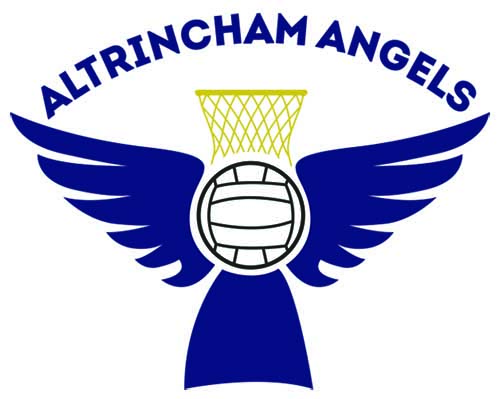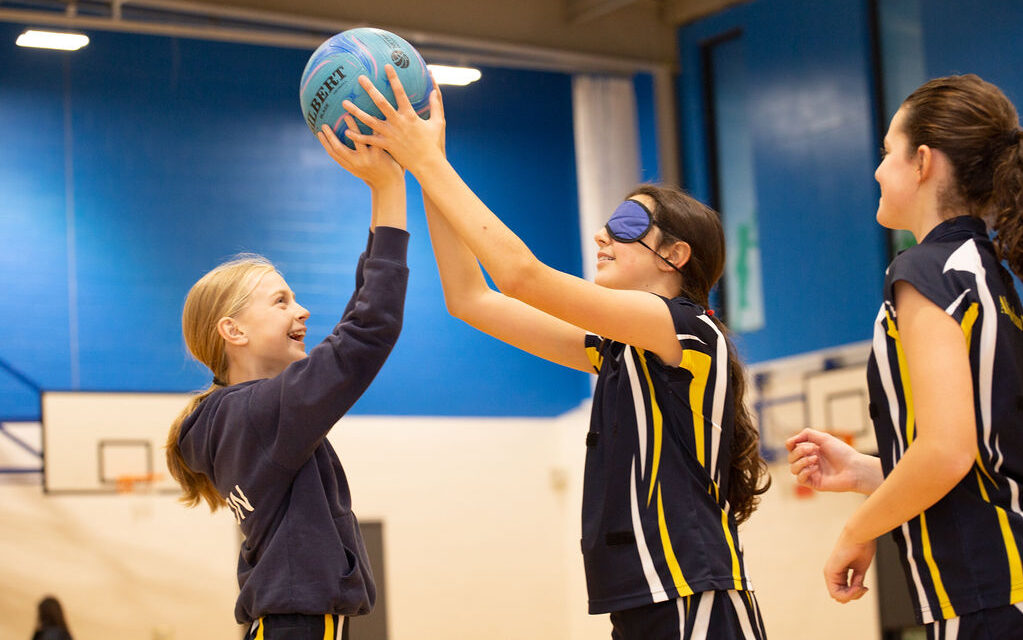PHOTOGRAPHY AND VIDEO POLICY
Introduction
Altrincham Junior Netball Club (AJNC) is committed to providing a safe environment for children and young people to participate in netball as a form of sport and physical activity. An essential part of this commitment is to ensure that all of the necessary steps are in place to prevent inappropriate images being taken or innocent images being adapted for inappropriate use. Please note; the term ‘images’ refers to photographs and videos captured on any photographic device, including mobile phones, tablets etc.
If club members and other interested parties are aware of the risks, and take appropriate steps, the potential for misuse of images can be significantly reduced.
The key principles are:
• The interests and welfare of children and young people involved in the activities of AJNC is paramount
• Consent should always be obtained from parents/guardians/carers and children before any images are taken and used
• Parents/guardians and children have a right to decide if their images are to be taken and how those images may be used
• Consent lasts for a year and is not indefinite
• Images should convey the key principles and aspects of netball, such as fairness and fun
• Care should be taken to ensure that images are appropriate and not open tomisinterpretation or misuse
• Personal information accompanying images should be minimised to reduce the risk of children being identified
• Images should never be taken in changing rooms
• Images should only be taken by authorised persons, within the agreed protocol for a particular session or event
• Unsupervised access to children or one to one photo sessions should not be approved.
• All images of children should be stored securely
• In the case of images used on websites, particular care must be taken to ensure that any identifying details are withheld, as they could be used to by a potential abuser to facilitate contact with a child.
By adopting the points highlighted in this policy, you will be putting into place the best possible practice to protect children wherever images are taken and stored.
This policy focuses on the following key areas:
• The use of photographic and recording equipment at events
• The publishing of images of young people and/or vulnerable adults
• The use of video analysis as a coaching aid
Taking images at events
At many events, organisers and others will reasonably wish to take wide angle, more general photos of the event sites, opening and closing ceremonies, and so on. This is separate to the issue of consents for ‘identifying’ photographs and footage. Parents and children should at least understand that these types of images will be taken during, or at specific points in the event. It is not reasonable, practical or proportionate to require parental consents for this type of photography, or to preclude it on the basis of the concerns of a small number of parents.
Whilst AJNC does not want to prevent family, friends or other spectators being able to take images at netball training sessions or events for legitimate reasons, there is evidence that certain individuals will visit sporting events to take inappropriate images of children and we need to be vigilant about this possibility.
Clubs and event organisers should inform children and parents that a photographer(s) will be in attendance at an event and ensure they consent to both the taking and publication of photographs or video footage which features and clearly identifies individuals (e.g. close ups, small group and team photos), and any concerns should be reported to the event organiser.
The event organiser should also:
• Display signs informing people that they need to register for permission to take images and informing them that they must adhere to the guidelines which have been set by the club
• Have the photography guidelines available for people to view
• Obtain consent for images to be taken from young people and
their parents/guardians
• Inform players and their parents/guardians that a photographer(s) will be in
attendance at an event and ensure they consent to both the taking and
publication of photographs or video footage
• Ensure that a system is introduced to ensure that press photographers are
made aware of those children, young people and vulnerable adults who have not given their consent for images to be taken;
• Provide a clear brief about what is considered appropriate in terms of the type of images and content
• Decline unsupervised access to players or one to one photo sessions
• Decline requests for access to children and young people outside of the sporting environment.
AJNC also operates a registration scheme for professional and amateurphotographers, student or video operators wishing to take images of children at a game. Anyone wishing to take photographs or video footage must register at each individual event and should not assume that registering at a previous event automatically transfers to the next one.
Please note the following suggested wording for displaying on signs at your event:
In line with the recommendations provided by the NSPCC’s Child Protection in Sport Unit, the promoter/event organiser requests that anyone wishing to take any video, zoom or close-range photography should register their details with the event organisers before doing so.’
Similarly, if parents have any concerns about their child being photographed or filmed, they should notify the promoter/event organiser immediately.
The promoter/event organiser reserves the right to decline entry to any person unable to meet or abide by the above-mentioned conditions. Likewise, if you are concerned about a photographer or any photography that is taking place at an event, please contact the promoter/event organiser immediately.
Club guidance on the taking and publishing of images
Clubs should include a section on photography in their Child Protection Policy.
When confirming fixtures with the opposition, consent for taking images, including videoing the game should be discussed.
The club can only give consent on behalf of the team after they have gained the relevant player and parental consent. If consent is refused, for example, if there are concerns over images of one player being published, if possible the club should manage the situation by filming/photographing when possible and making this available to the opposition after editing/reviewing the images first.
Publishing images guidance:
• Ensure that when obtaining permission from a child and their
parents/guardians, they are aware how the images may be used
• NEVER publish personal details (email address, telephone number,
address, social media accounts etc) of a child with their photograph
• Only use images of players wearing appropriate netball clothing
• Wherever possible try to focus on the activity rather than a child and
images that represent everyone involved in the sport.
This might include:
• Boys and girls
• People from black and ethnic minority communities
• People with disabilities
• Ensure that images reflect positive aspects of children’s involvement in netball(enjoyment/competition etc);
• Photography consent lasts for a year, from the date that the consent was granted (unless otherwise stated). Consent should be updated on a yearly basis and not assumed that once given, it is indefinite.
• If parents/guardians or the young person’s circumstances change and they wish to remove their consent, they must inform the club in writing and should not assume that the club will automatically be aware of this change.
• Parents/Guardians and young people need to be made aware that once images are in circulation or have been published, it may not be impossible to get them removed. Whilst every effort will be made to ensure that any inappropriate images are removed this cannot be guaranteed.
Video analysis as a coaching aid
Video can be a legitimate and powerful coaching aid, however if it is to be used, make sure that children and their parents/guardians have given their written consent, and understand the purpose of the video. For AJNC this is integrated into the consent section of the club registration form.
For the use of video analysis in competitions and events, permission should be requested from the opposition prior to the event. Parents should also be made aware that the event is being filmed.
With regards to video analysis, footage must be focused on the game. Equipment can be operated on behalf of the club by any individual the club/team assigns for this role. However, the footage must be removed and stored safely after games by a club member who has undertaken the safe recruitment processes. It is the team coach and club’s responsibility to ensure that the footage is used appropriately and in line with the following policies.
• AJNC Safeguarding Policy
• Code of Conduct for Sports Coaches and Volunteers
• Privacy & Data Protection Policy
The officers of AJNC will only upload video for analysis from external software providers where due diligence checks have been undertaken. The officers agree not share personal information about players with external software providers which is not legitimately required for game analysis. Information shared must be limited to player name and player number.
Use of photographic and recorded images when teams are playing outside of the UK
When age group teams play in other countries, there may not be the same restrictions on photography and/or filming. Many countries allow widespread use of cameras and video equipment in sports halls. When young players are selected or have the opportunity to participate in such events, parents need to be made aware of the possibility that this might happen. They can then decide whether they are happy for their child to play in these circumstances.

